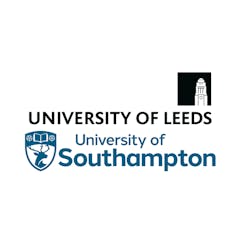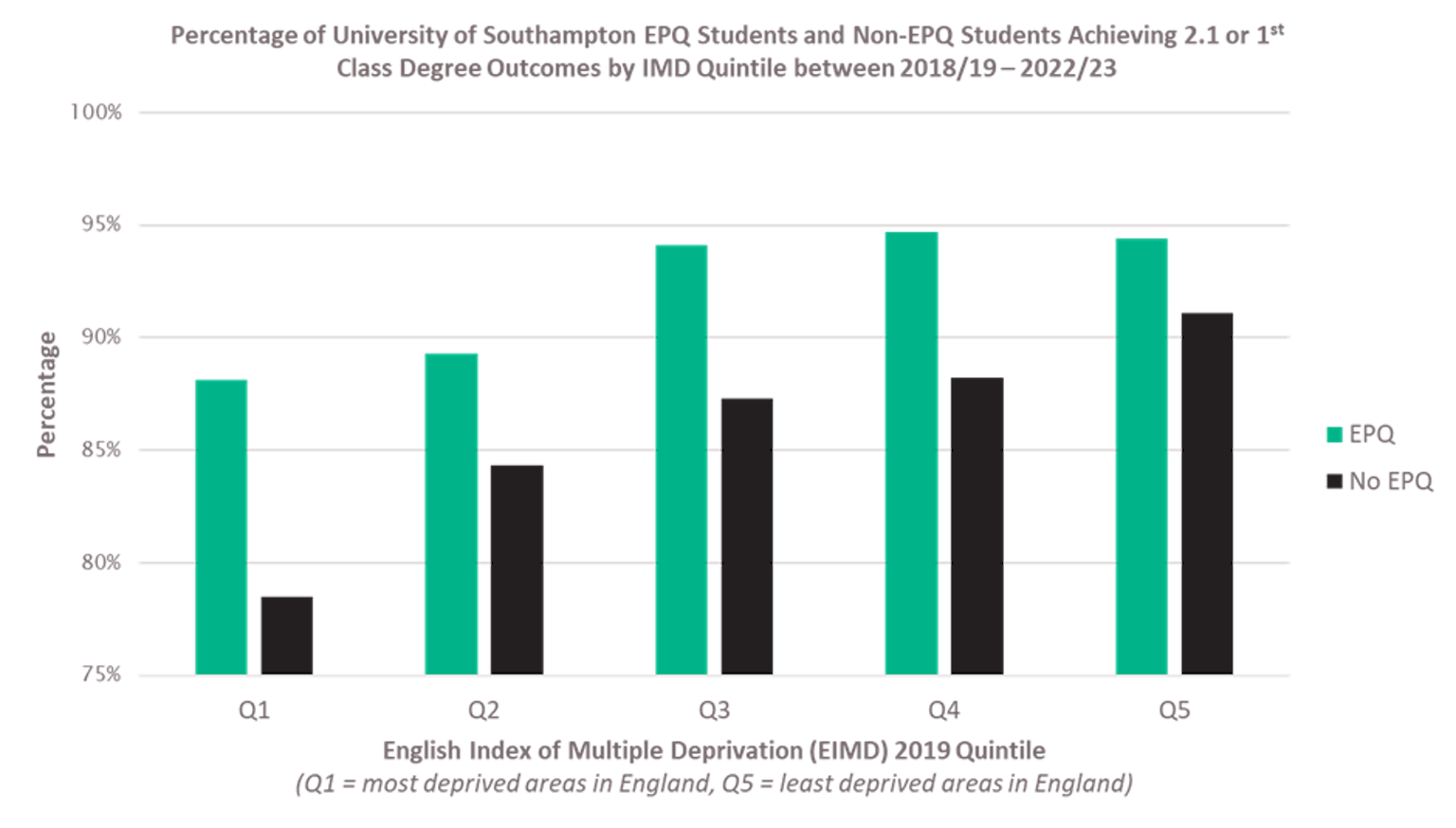In June last year, we presented at the Russell Group Teachers and Advisers Conferences about the EPQ's role in promoting social mobility and emphasising the importance of collaborative partnerships for project-based learning between universities and schools/colleges. These partnerships are vital for meeting the expectations of regulators like Ofsted and the OfS. Supporting teachers in guiding students through the EPQ is crucial, as this qualification demands a distinct set of skills beyond those required for GCSEs, A Levels, or other post-16 qualifications. The EPQ asks students to be independent, curious, demonstrate critical thinking, recognise how their ideas are built on the ideas of others through referencing and weighing up evidence, and engage in and reflect carefully on their development over a sustained period of study, writing and/or making. These are exactly the skills that young people need to survive and thrive at a Russell Group university and our research and experience shows us that they help bridge the acknowledged equity gap created by previous educational experience and social, economic and cultural context.
What is the Extended Project Qualification?
Equivalent to an AS-Level, the EPQ is a Level 3 skills-based project qualification ‘designed to develop and extend students’ abilities beyond the A-level syllabus and prepare them for university or their future career’ (AQA, 2023). The qualification, offered by multiple exam boards, is non-examination assessed, and students can complete the EPQ alongside other Key Stage 5 qualifications including A-Levels and BTECs.
Students undertake a piece of independent research of their choosing to produce a final product, which may take the form of a written report/dissertation, investigation, an artefact, a performance or a design, much like the kind of work expected of students at university. The qualification is process-driven, and students are assessed on their ability to reflect upon their research journey and the skills they have developed, through the completion of a production log and presentation.
The Value of the EPQ and its role in Social Mobility
Research on student journeys at Leeds and Southampton reflects findings from across the sector that show the EPQ plays an important role in students’ transition to HE by improving access and success outcomes (Jones, 2015; Gill, 2022; Gill, 2024). Many students face inequalities in their HE journey, across three key factors: access, participation, and progression. The Office for Students (OfS) identifies unequal access to essential knowledge and skills for HE as a significant risk to equality of opportunity. This disparity can lead to lower attainment and limited subject choices at Key Stage 5, which consequently impacts progression rates to HE (OfS, 2023).The EPQ serves as a powerful vehicle for promoting social mobility by providing students from disadvantaged backgrounds with additional opportunity to acquire the knowledge and skills needed for successful HE. This qualification enables students to achieve A-Level and degree-level outcomes that accurately reflect the knowledge and skills necessary for accessing and achieving success in HE.
When students have completed an EPQ prior to studying at university, they are more likely to progress to HE compared to students without an EPQ (Gill, 2017; Gill, 2022; Gill, 2024). However, even when disadvantaged students are accepted into HE courses, prior unequal access to resources needed to develop essential knowledge and skills can impact on-course success (such as degree awarding and continuation rates) at university (OfS, 2023). Research at the University of Southampton has shown a five-year aggregated degree awarding gap of 12.6% between students from the lowest quintile/most disadvantaged areas (IMD Quintile 1) and the highest quintile/least disadvantaged areas (IMD Quintile 5) of the Indices of Multiple Deprivation However, this gap is smaller, at 6.3%, when students have completed an EPQ.





